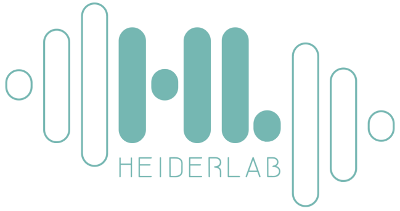CORona Drug InTEractions database
Prediction of SARS-CoV-2 Main Protease Inhibitors from Several Medicinal Plant Compounds by Drug Repurposing and Molecular Docking Approach.
Sayma Farabi, Nihar Ranjan Saha, Noushin Anika Khan, Md. Hasanuzzaman.
Abstract
Coronaviruses are endemic in humans and infections normally mild, such as the common cold but cross-species transmission has produced some unusually virulent strains which now causing viral pneumonia and in serious cases even acute respiratory distress syndrome and death. SARS-CoV-2 is the most threatening issue which leads the world to an uncertainty alongside thousands of regular death scenes. For this virus, death toll is increasing in. An effective vaccine to cure this virus is not yet available, thus requires concerted efforts at various scales. The viral Main Protease controls Coronavirus replication and is a proven drug discovery target for SARS-CoV-2. Here, comprehensive computational approaches including drug repurposing and molecular docking were employed to predict the efficacy of medicinal plant-based bioactive compounds against SARS-CoV-2 Mpro. Molecular docking was performed using PyRx-autodock vina to analyze the inhibition probability. MPP (6LU7) was docked with 90 phytochemical compounds and docking was analysed by PyRx-autodock vina, Pymol version 1.7.4.5 Edu, and Biovia Discovery Studio 4.5. Furthermore, ADME analysis along with analysis of toxicity was also investigated to check the pharmacokinetics and drug-likeness properties of the antiviral phytochemicals. Remdesivir and lopinavir were used as standards for comparison. Our analyses revealed that the top ten (Azadirachtin, -12.5kcal/mol; Rutin, -9 kcal/mol; Theaflavin, -9 kcal/mol; Astragalin, -8.8 kcal/mol; Isoquercitrin, -8.7 kcal/mol; Hyperoside, -8.6 kcal/mol; Baicalin, -8.4 kcal/mol; Saponin, -8.3 kcal/mol; Sennoside A, -8.3 kcal/mol; Aloin, -8.2 kcal/mol, while Remdesivir and Lopinavir showed -8.2 and -7.9 kcal/mol) hits might serve as potential anti-SARS-CoV-2 lead molecules for further optimization and drug development process to combat COVID-19.
Source: ChemRxiv
Related molecules
Related interactions
| Target | Target affiliation | Drug | Type | Result |
|---|---|---|---|---|
| Target | Target affiliation | Drug | Type | Result |
| Name | Synonyms | Genes | Origin |
|---|---|---|---|
| Name | Synonyms | Genes | Origin |
| Name | Synonyms | PubChem | DrugBank | RCSB PDB | ATC |
|---|---|---|---|---|---|
| Name | Synonyms | PubChem | DrugBank | RCSB PDB | ATC |
| Title | Authors | DOI | Source | Article type | Date |
|---|---|---|---|---|---|
| Title | Authors | DOI | Source | Article type | Date |
| Title | Status | Phases | Start Date | Prim. Comp. Date | Comp. Date | First Post. Date |
|---|---|---|---|---|---|---|
| Title | Status | Phases | Start Date | Prim. Comp. Date | Comp. Date | First Post. Date |
CORDITE (CORona Drug InTEractions database) collects and aggregates data from PubMed, MedRxiv, BioRxiv, ChemRxiv and PMC for SARS-CoV-2. Its main focus is set on drug interactions either addressing viral proteins or human proteins that could be used to treat COVID. It collects and provides up-to-date information on computational predictions, in vitro, as well as in vivo study data.
The information provided is for research only and we cannot guarantee the correctness of the data.
Please contact dominik.heider@uni-muenster.de for further information.
Programmable access
There is an open API for access programmatically to the database. The API will print a JSON output:
- Interactions
https://cordite-api.uni-muenster.de/api.php?action=list&table=interaction
- Targets
https://cordite-api.uni-muenster.de/api.php?action=list&table=target
- Drugs
https://cordite-api.uni-muenster.de/api.php?action=list&table=drug
- Publications
https://cordite-api.uni-muenster.de/api.php?action=list&table=publication
- Clinical trials
https://cordite-api.uni-muenster.de/api.php?action=list&table=clinical_trial

